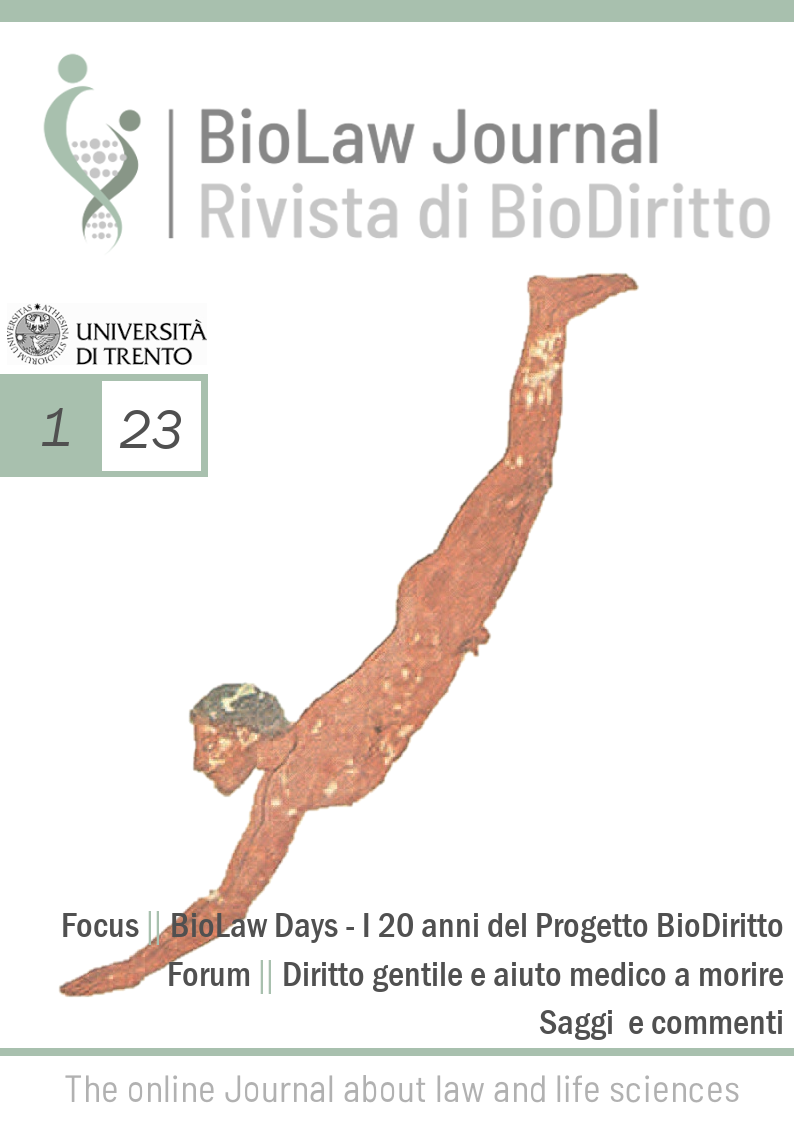A reality outside the law: an ethical-legal analysis of the 30 years of deontological regulation of assisted reproduction technologies in Brazil
DOI:
https://doi.org/10.15168/2284-4503-2645Keywords:
Bioethics, biolaw, medical ethics, reproductive biotechnology, assisted reproduction technologyAbstract
For more than four decades, assisted reproduction technology (ART) techniques have enabled the design of parenting projects in cases where infertility and sterility are obstacles to having children. In Brazil, for example, the first “test tube baby” was born in the early 1980s, and the use of ART has since expanded in the country. However, the normative reality does not show such a feat, since, so far, there is no specific law that regulates the matter, a situation that ended up generating a great appreciation of the deontological Resolutions edited by the Federal Council of Medicine (CFM), which, despite not being law in a formal sense, end up establishing guidelines for the use of these procedures. In this way, the problem arises: what are the main contributions brought by the CFM Resolutions to the regulation of ART in Brazil and what is its role in the face of the Brazilian regulatory framework? With this, it was found that these Resolutions have been updated, over time, in order to accompany the advances of ART technologies, but they still lack the cogent force that only a law in the formal sense would have the power to make possible, leaving to the judiciary and its administrative bodies, in most cases, the role of overcoming this absence. For that, it was used the method of analytical-deductive reasoning, through bibliographic and documental research with a qualitative approach.
Downloads
Published
How to Cite
Issue
Section
License

This work is licensed under a Creative Commons Attribution-NonCommercial-NoDerivatives 4.0 International License.





